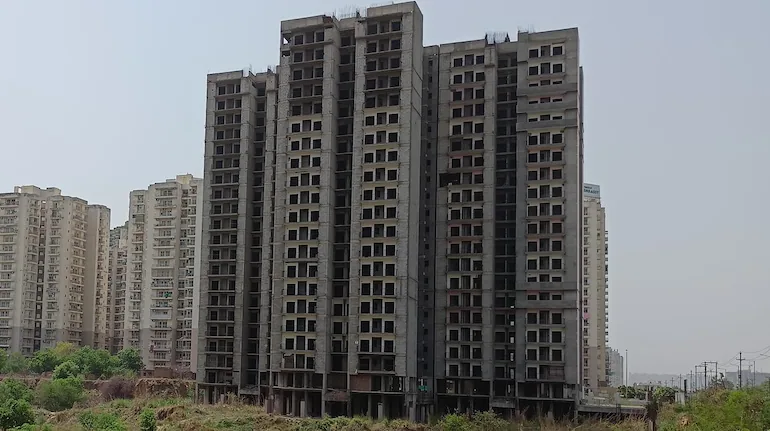The Haryana government has launched a series of guidelines related to the licensed colony phasing, mandating the 2nd/3 approval of Allottees in the event of a revision in the layout/development plan. This guideline will ensure the coordinated functions of the legal authority under the Haryana Development Law and the Urban Area Regulation, 1975, Real Estate Law (Regulation and Development), 2016, and the Law of Haryana Apartment ownership, 1983.
To regulate the development and examine the development of haphazards in and around the city, the City and State Planning Department (TCP) issued a license to developers for the construction of housing or commercial colonies. Land parameters are based on the potential of the region as decided by the Haryana government. The area in Haryana has been divided into four types:
1. Hyper: urban areas inside and around the city of Gurugram, including urban areas stated by the government for the Urban Gurugram-Manesar
2. High Potential: Faridabad-Ballabgarh, Panchkula, Kala, Gallari-Balola-Balola Bandhwari Complex Complex Complex in the Gurugram District, Sonepat-Kundli Urban Complex, Panipat
3. Medium Potential: Karnal, Kurukshetra, Ambala City, Ambala Cantt, Yamuna Nagar, Bahadurgarh, Jagadhari, Hisar, Rohtak, Ganaur, Palwal, Hodal, Rewari, Dhuvenra-Bawal and Paniipat Panipat oil
4. Low potential: all other urban areas in the state.
According to the rules, the minimum area for plotted housing colonies is 25 hectares for those in the hyper zone, 20 hectares for high potential zones, 15 hectares for medium potential zones, and 10 hectares for low potential zones. On the other hand, the minimum area needed for housing projects housing group is five hectares for hyper, four hectares for high potential, two hectares for moderate potential, and one hectare for low potential zones.
What are the previous rules for changes in phasing?
According to a senior TCP official, the developer was previously used to inform changes in phasing/alignment and invite objections by issuing the same thing in the newspaper and by sending letters/emails to allottees. In this case, even if someone used to file an objection, through several technical gaps, the builders used to objection to canceling and continue with the desired changes, he said.
Senior City Planner Narendra Singh Solanki told MoneyControl that even if some objections were submitted before, the right message was not conveyed by Allottees. “Now, people are more aware and submit objections in large quantities. Until now, the developer is first used to receive principle approval and then invite objections or suggestions from Allottees. But now, the department mandates the 2/3rd approval if the developer wants to make changes In stages, “Solanki said.
He said that until now only Allottees used to respond to who knows about the notification issued/sent by the invaders. And in many cases, this objection is used to be invalid because they do not contain logical/technical reasons, he said.
“Previously, we used to get complaints from Allottees regarding changes in the plan by the developer. Now, the developer cannot make any changes without the approval of 2/3. This is like the OTP that you share with a shipping boy. Without OTP, the delivery cannot be done, “Said Solanki explained the rule.
Licensed colony status
There are about 185 licensed housing colonies in Haryana, of which 72 in Gurugram, 36 in Panchkula, and 18 in Faridabad. Of the 438 licensed group housing colonies, 306 are in Gurugram, 62 in Faridabad, and 54 in Rohtak. There are a total of 155 affordable housing projects licensed in the state, where 119 are in Gurugram and 25 in Faridabad. There are a total of 305 colonies under Deen Dayal Jan Awas Yojna, 90 of them are in Gurugram, 82 in Rohtak, 70 in Panchkula, and 42 in Faridabad.
What are the new rules?
In accordance with new rules, the developer must express his plan for the development of colonies, or part of it in the phase to the Director, TCP (DTCP). Also, developers must show community sites and commercial sites as an independent phase in the location plan. The rule also says that the building/tower tower will not be divided into several phases. Also, the plot/flat/flat that is economically weaker (EWS) must be transferred to the Haryana Housing Board (HBH), and therefore, may not be part of any phase.
The rule also seeks to mandate the declaration of all phases proposed by the previous developers. The phase must be expressed with, at least, important important services, namely, water supply, wastewater channels, drainage, roads, electricity, etc., the rules said. According to these guidelines, if the invaders want to change phasing as expressed in TCP, it is only permitted with previous approval from the Real Estate Regulatory Authority Haryana (Rera).
Previously, the entire project was approved at once and they used to carry out construction according to their comfort. Now, the developer must also state the construction plan of the phase-impression,” explained Solanki.
The document draft says that while the previous policy was found effective, there was a lack of uniformity in the procedure because the registration of several transit -oriented development (TOD)/development rights that could be transferred (TDR) granted by the project had been very delayed. To complete this situation, the guideline proposes that the developer must look for approval 2/3 of allottees in the event of a revision of the layout/ development plan, taking into account the phasing plan.
The rule also said that in cases that involved an increase in the ratio of the floor area (FAR) in the existing project without obtaining 2/3 of the approval, Allottees could seek legal recovery based on the provisions of the Rera Law, 2016.
This is what is said by experts/residents of law
Advocate VK Bansal said that the policy would limit the arbitrary changes made by the developer.
“Under the old policy of urban and state planning, the builder can manipulate the rules to change their building plans and plan plans. Previously, they used to receive the agreement of the phase. , then buyers usually face problems due to changes, such as in the park area, road, etc. Now, new policies ask them to express all phases in advance and determine the date for the first construction phase. This will benefit the buyer because they will be able to see all the proposed phase and plan first. And if the developer wants to make a change in the plan, then it must take approval 2/3 of the Allottees. The similar policy of the 2nd agreement is already in the rera. The new guidelines will limit the arbitrary changes made by the developer. Now the builder cannot make changes easily , “said Bansal.
He, however, shows that the process of obtaining the 2nd approval must be fair. If not, developers can manipulate buyers.
The biggest problem with a new policy is that the developer can manipulate/force the buyer to take the 2nd/3 approval because those who may have ordered flat will be under pressure because their money will be jammed. free and fair. This might appoint a government official who can explain small details to the buyer clearly, so that it helps them make decisions. DTCP can also make the submitted changes uploaded on the website, which will be verified by their officials, and then can improve the line The time for that, “he said.
However, the Gurugram residents said the guidelines would not make a big impact because most of the disputes were related to the delivery of facilities promised by the builder at the time of sale.
“Instead of buyers will get great benefits from this. I have suggested previous DTCP also that the dispute between the developer and the buyer is mostly because it does not send the promised facilities. I have asked them to connect payments with flat delivery and facilities. Say, until a developer gives All facilities promised, it will not get more than 80 percent of payments from the buyer. This must get the remaining 20 percent only after providing the promised facilities and show it to the department, “said Praveen Yadav, President of United Gurugram Rwas







More Stories
Dhruv Ralhan: Redefining Realty in Tampa, FL
The concept of smart water – and how it helps!
Discover the French Connection Boosting Scholarship Opportunities in Canada